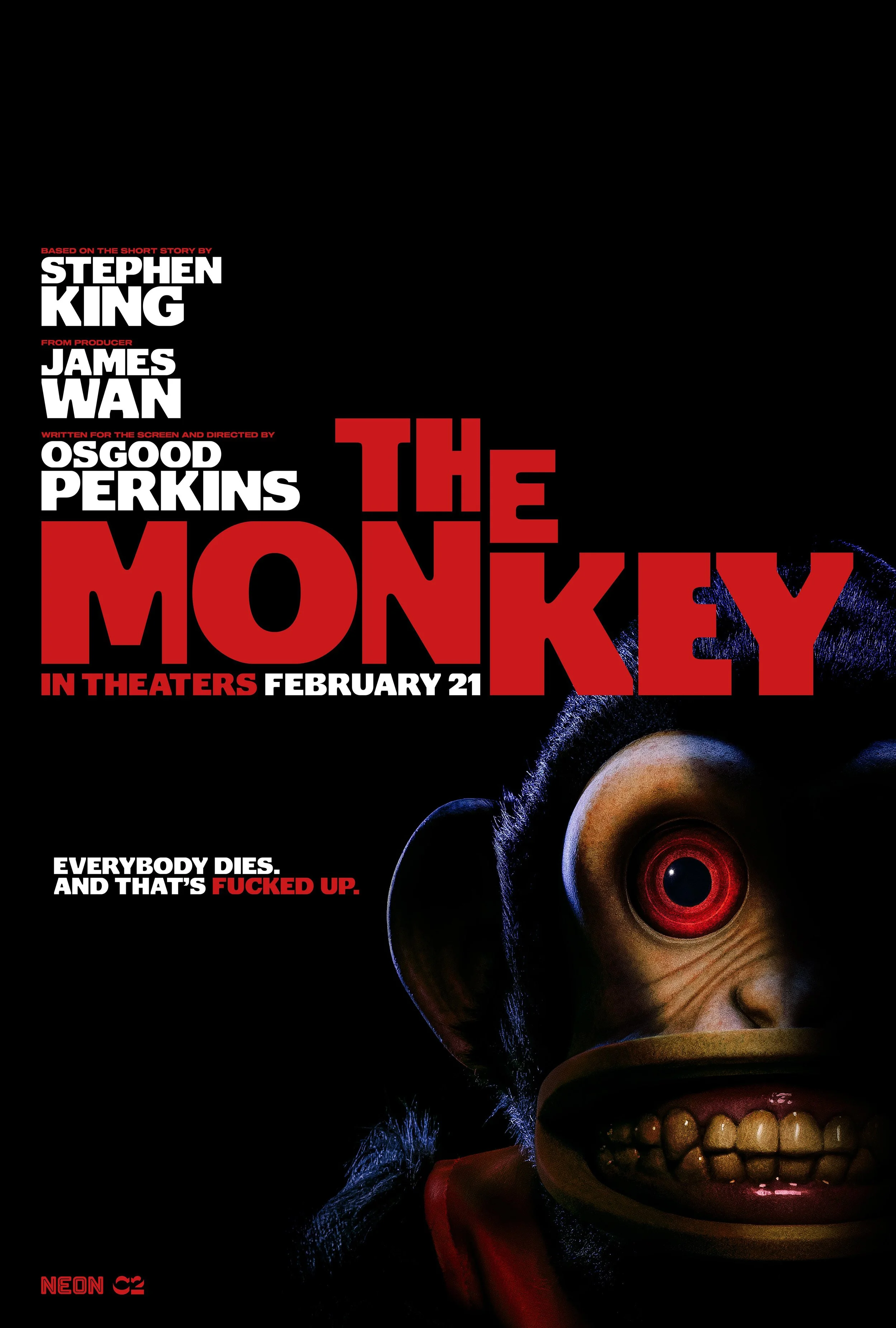Episode 134: The Monkey with Osgood Perkins
How do you follow up a film like Longlegs – the chilling riff on serial killer thrillers like Silence Of The Lambs that last year became one of the cult smashes of 2024? The answer, if you’re my guest today, acclaimed writer-director Osgood Perkins, is to swap out the pressure-cooker dread of that breakout hit. Next, add a cursed toy monkey. Harvest the wildest, darkest parts of your imagination for some of the most original (not to mention gruesome) demises ever seen on screen. And package all of the above into an existentialist comedy about embracing death. Yes, today on the show, Oz and Al Horner talk all things The Monkey, a Stephen King adaptation inspired by the literary icon’s 1980 short story of the same name, but very much a work of Oz’s own invention.
From the moment a flamethrower-wielding Adam Scott opens the film with a maniacal cameo, screaming as he scorches everything in his path, it’s clear the movie is operating on a different tonal plane to Longlegs. But make no mistake, The Monkey is just as personal to Oz as that film and others before it, like The Blackcoat's Daughter and 2016’s I Am the Pretty Thing That Lives in the House. Perhaps, in fact, even more so. As Oz explains in this moving spoiler conversation, the film is a meditation on death because death is something he’s experienced up close in the most unimaginably tragic circumstances; on September 12 1992, his father, Psycho actor Anthony Perkins, died of AIDS-related pneumonia at his home in Los Angeles. Almost exactly nine years later, his mother, the actress and photographer Berry Berenson, was aboard American Airlines Flight 11 when it was hijacked by terrorists and flown into the North Tower of the World Trade Centre, on September 11, 2001.
The Monkey, Oz says, features Theo James playing two roles as twin brothers Hal and Bill, because “that’s my life,” as he puts it. The filmmaker and his brother Elvis Perkins, an acclaimed musician, became “buried in the rubble of the tragedy” of their mother’s death on 9/11 and emerged with “differences more apparent than ever.” In the conversation you’re about to hear, Oz tells me the extent to which the movie helped reconcile some of the feelings towards his brother. Al asks him about the ending of the film, which involves a plane crash – a very emotionally-loaded image, given his tragic family history. And he also tells us why accepting death is the only true way to find peace.
Script Apart is hosted by Al Horner and produced by Kamil Dymek. Follow us on Instagram, or email us on thescriptapartpodcast@gmail.com.
Support for this episode comes from ScreenCraft, Final Draft and WeScreenplay.
To get ad-free episodes and exclusive content, join us on Patreon.



